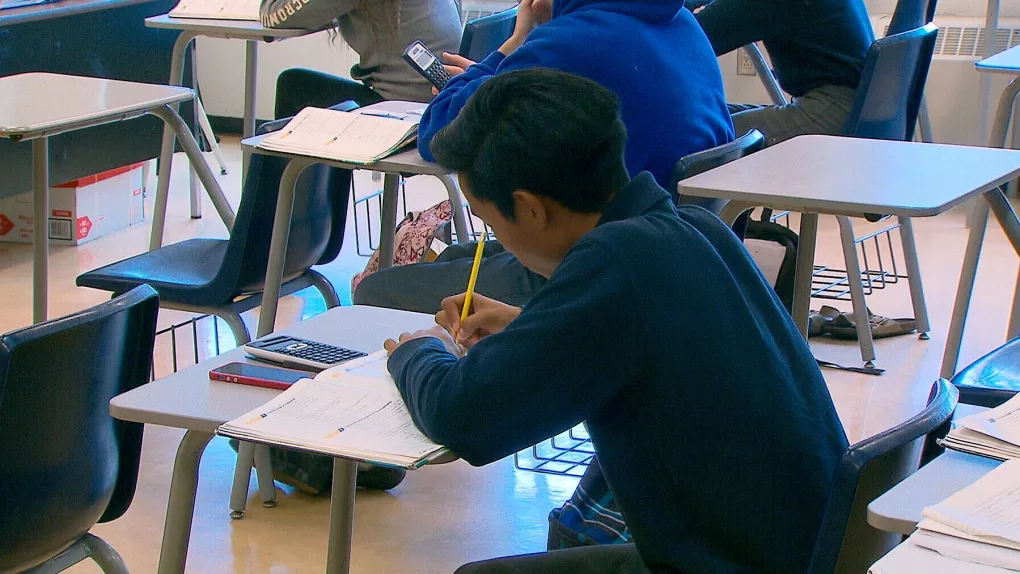Parental involvement plays a crucial role in fostering academic success and personal development in Ontario education. When parents actively engage in their child’s educational journey, it creates a strong foundation for learning, promotes positive relationships with schools, and enhances student outcomes.
In Ontario, schools recognize the value of parental involvement and actively encourage parents to be partners in their child’s education. This comprehensive guide aims to explore various aspects of parental involvement in Ontario education, providing practical strategies for parents to support their child’s academic growth and overall well-being.
From building positive relationships with teachers and understanding parental roles to effectively communicating with school staff and fostering a positive learning environment at home, this resource will equip parents with the tools to actively engage in their child’s educational journey.
Table of Contents
Parental Involvement in Ontario Education: How to Support Your Child
The Importance of Parental Involvement in Ontario Education
Parental involvement is a key factor in the success of Ontario education. Research consistently shows that when parents are actively engaged in their child’s schooling, students exhibit higher academic achievement, improved attendance, and enhanced self-esteem. By actively participating in their child’s education, parents demonstrate their commitment to their child’s learning, which fosters a sense of importance and motivation in the student.
Building Positive Relationships with Your Child’s Teachers and School Staff
Developing positive relationships with teachers and school staff is essential for effective parental involvement in Ontario education. Open and respectful communication establishes a strong partnership between parents and educators, allowing for the sharing of valuable insights about the child’s strengths, challenges, and learning styles. Regular communication channels, such as email, parent-teacher conferences, and school events, provide opportunities for parents to connect with teachers and stay informed about their child’s progress.
Understanding Your Role in Your Child’s Education
Understanding your role as a parent in your child’s education is crucial for effective involvement. While teachers are responsible for formal instruction, parents play a vital role in providing support, guidance, and a nurturing home environment that fosters a love for learning.
Recognizing the impact of parental involvement on a child’s educational success empowers parents to actively engage in activities that support their child’s academic growth.
Effective Communication Strategies with Teachers and School Administrators
Effective communication is the cornerstone of successful parental involvement in Ontario education. Parents should establish clear channels of communication with teachers and school administrators to stay informed about their child’s academic progress, upcoming events, and any concerns or questions they may have. Regular communication allows parents to address issues promptly, collaborate on solutions, and work together to support the child’s educational journey.
Supporting Your Child’s Learning and Homework Habits
Parents can greatly contribute to their child’s academic success by fostering positive learning and homework habits. Creating a designated study space at home, establishing a consistent homework routine, and providing guidance and support can help children develop effective study skills, time management, and organizational abilities. By encouraging a structured approach to learning, parents set the stage for their child’s academic achievement.
Encouraging a Love for Reading and Literacy at Home
Promoting a love for reading and literacy at home is a powerful way to support a child’s education. Engaging in regular reading activities, providing access to age-appropriate books, and encouraging discussions about the stories help develop vocabulary, comprehension, and critical thinking skills. Parents can also lead by example by engaging in their own reading habits and sharing their enthusiasm for literature with their child.
Navigating the Ontario Education System
Understanding Policies and Programs: Understanding the policies and programs within the Ontario education system empowers parents to navigate their child’s educational journey effectively. Familiarizing oneself with curriculum expectations, standardized testing, and special education services enables parents to advocate for their child’s needs, make informed decisions, and access available resources.
Engaging in Parent-Teacher Conferences and School Meetings
Parent-teacher conferences and school meetings provide valuable opportunities for parents to engage with educators and contribute to their child’s education. Attending these events allows parents to receive updates on their child’s progress, gain insights into the classroom environment, and discuss any concerns or questions they may have. Active participation demonstrates to both the child and school staff that parents are invested in their child’s education.
Fostering a Positive Learning Environment at Home
Creating a positive learning environment at home is essential for supporting a child’s educational journey. Parents can establish routines that prioritize education, create a supportive and encouraging atmosphere, and provide resources and materials that enhance learning.
By fostering a love for learning and making education a priority, parents inspire their child to take ownership of their education and succeed academically.
Balancing Parental Involvement with Your Child’s Growing Independence
As children grow and develop, it is important to strike a balance between parental involvement and their growing independence. Allowing children to take on increasing responsibility for their education empowers them to develop essential life skills and self-reliance. Parents can gradually transition from direct involvement to providing guidance and support, empowering their child to become an active participant in their own education.
Conclusion
Active parental involvement in Ontario education is a powerful tool for enhancing student success and overall well-being. By building positive relationships with teachers, understanding parental roles, and effectively communicating with school staff, parents can actively contribute to their child’s educational journey.
Supporting learning and homework habits, fostering a love for reading and literacy, and navigating the Ontario education system are all essential components of effective parental involvement. Engaging in parent-teacher conferences and meetings, fostering a positive learning environment at home, and striking a balance between involvement and independence further strengthen the impact of parental support.
By actively engaging in their child’s education, parents in Ontario play a vital role in shaping the academic achievements and future prospects of their children.




Pingback: Top 10 Best School Boards in Ontario - Schools in Ontario
Pingback: The Importance of School Boards in Ontario - Schools in Ontario
Pingback: Factors to Consider when Choosing an Elementary School in Ontario - Schools in Ontario